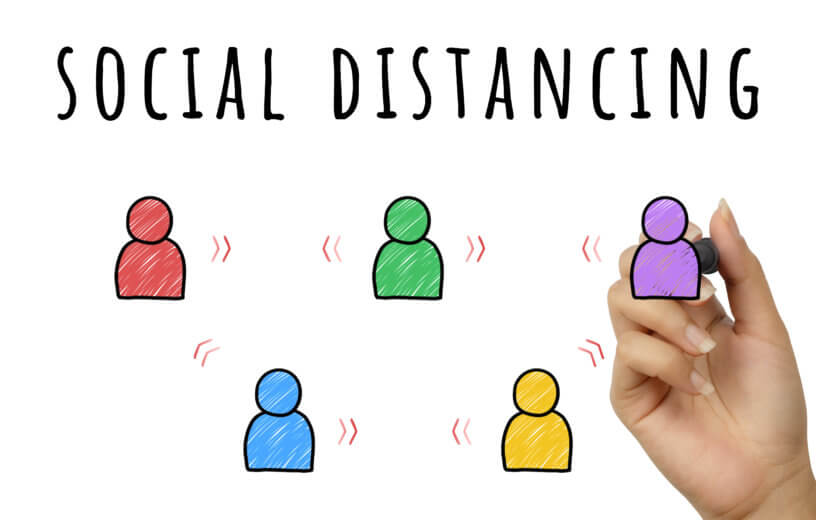COLOGNE, Germany — A significant and vocal portion of Americans have resisted COVID-19 containment measures at every turn. From wearing a mask to maintaining a safe distance from other people, this contingent believes following such recommendations is unnecessary and oppressive. Policy makers and health officials are trying their best to convince the general public these practices are necessary. Now, one new study from the University of Cologne offers a clever suggestion.
Results from three different experiments show that people who once avoided social distancing changed their minds and embraced the idea after being educated about and fully understanding COVID-19’s tendency for exponential, not linear, growth.
Each experiment consisted of over 500 participants, all of whom were adults living in the United States.
“In general, people have difficulty understanding exponential growth and erroneously interpret it in linear terms instead”, explains first study author Joris Lammers in a release. “Our current work tests the role of exponential growth bias in shaping the public’s view on social distancing to contain the coronavirus’s spreading.”
Exponential growth vs. linear growth
In a nutshell, many individuals are vastly underestimating the domino effect that just one infected person can have. Imagine just one person in a town has COVID-19, and they infect two more people. Those two people will likely infect four, and those four will infect eight, and on and on. Linear growth, on the other hand, would mean coronavirus just infects one additional person per carrier, and that, unfortunately, definitely isn’t the case here.
All three experiments were held in March, just as the coronavirus started to dominate the nation’s attention. The first investigated participants’ understanding of linear growth. Results show that many Americans inaccurately believe COVID-19 spreads linearly, not exponentially.
It’s worth noting that political affiliations do seem to play a role in this phenomenon. Republicans were found to be much more likely to hold this false belief than Democrats.
Importance of social distancing
The second and third experiment focused on educating participants regarding COVID-19’s exponential growth. After being taught the virus’ true nature, most Americans who were initially skeptical of social distancing changed their tune and said they would start keeping a safe distance from others.
“Together, these results show the importance of statistical literacy to recruit support for fighting pandemics such as the coronavirus,” Lammers says.
“Our results stand in contrast to earlier literature showing that the exponential growth bias is difficult to overcome,” he continues. “The reason for this is that the current study focuses on a threat with great personal relevance and media presence, which likely increases subjective availability and thus the estimated probability of the risk.”
As much as we all want it to appear tomorrow, a vaccine is still about a year away. So, social distancing isn’t going away anytime soon. With this in mind, the study’s authors say their findings drive home the fact that far too many people are allowing their personal biases and or lack of knowledge to get in the way of stopping this pandemic. They suggest campaigns focused on raising exponential growth awareness, as well as statistical literacy.
The study is published in Proceedings of the National Academy of Sciences.
